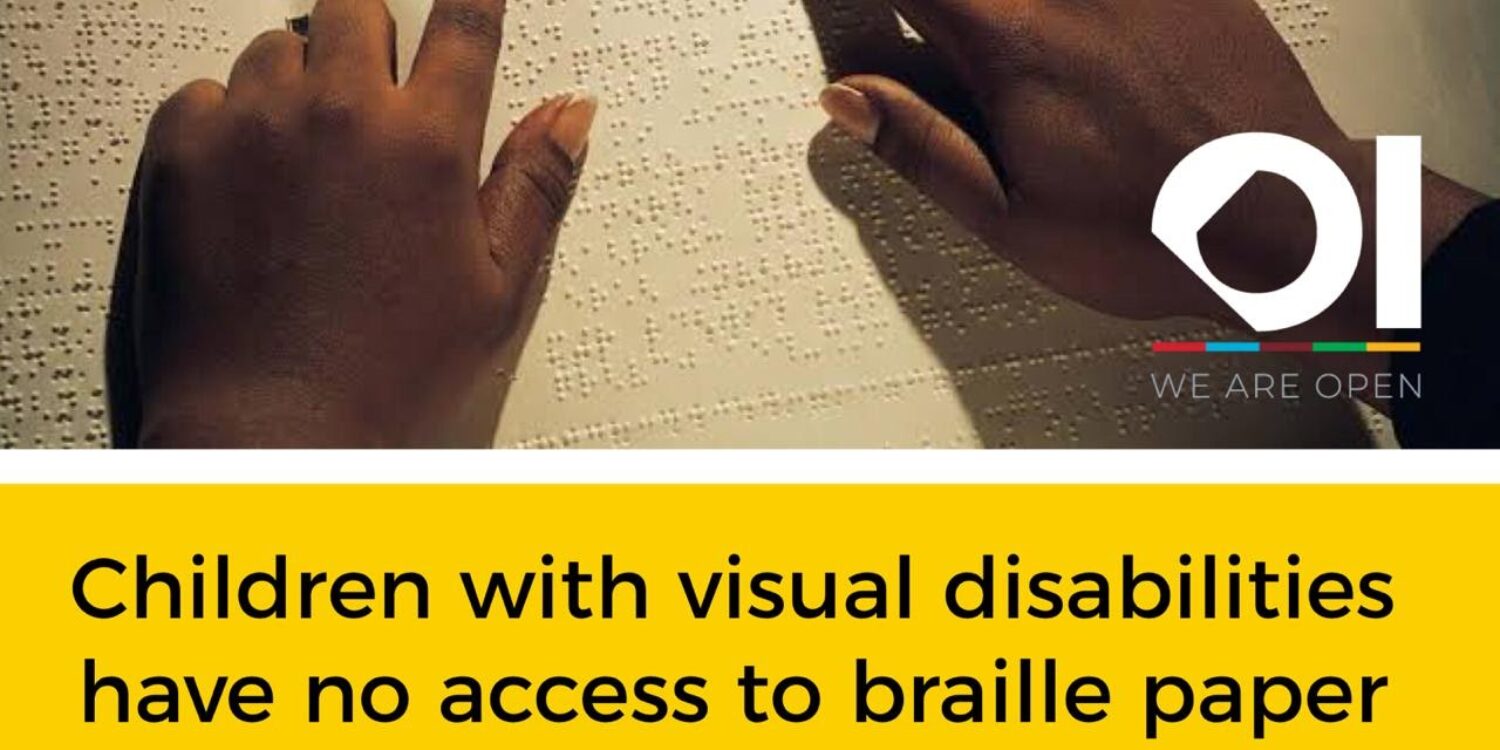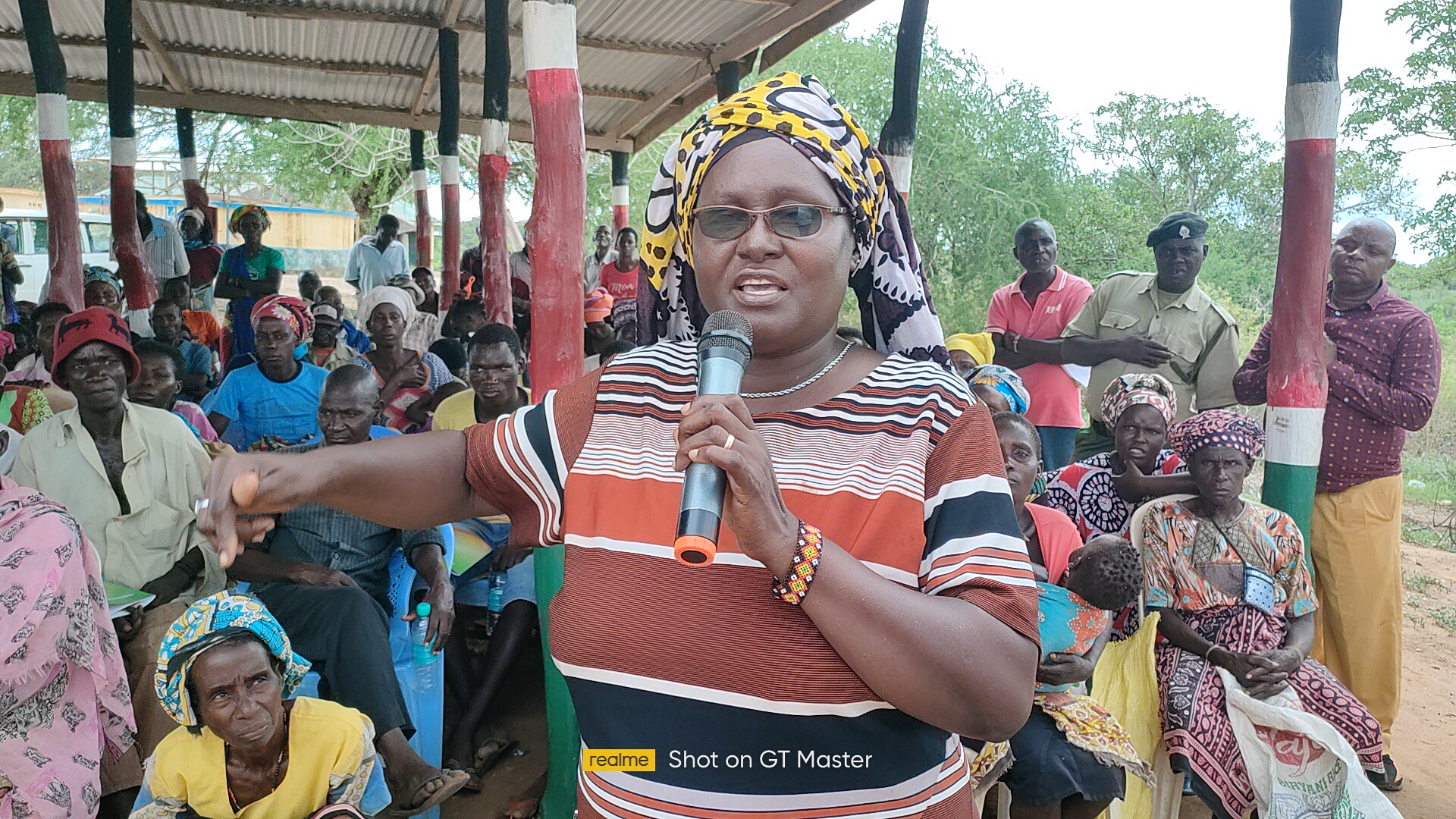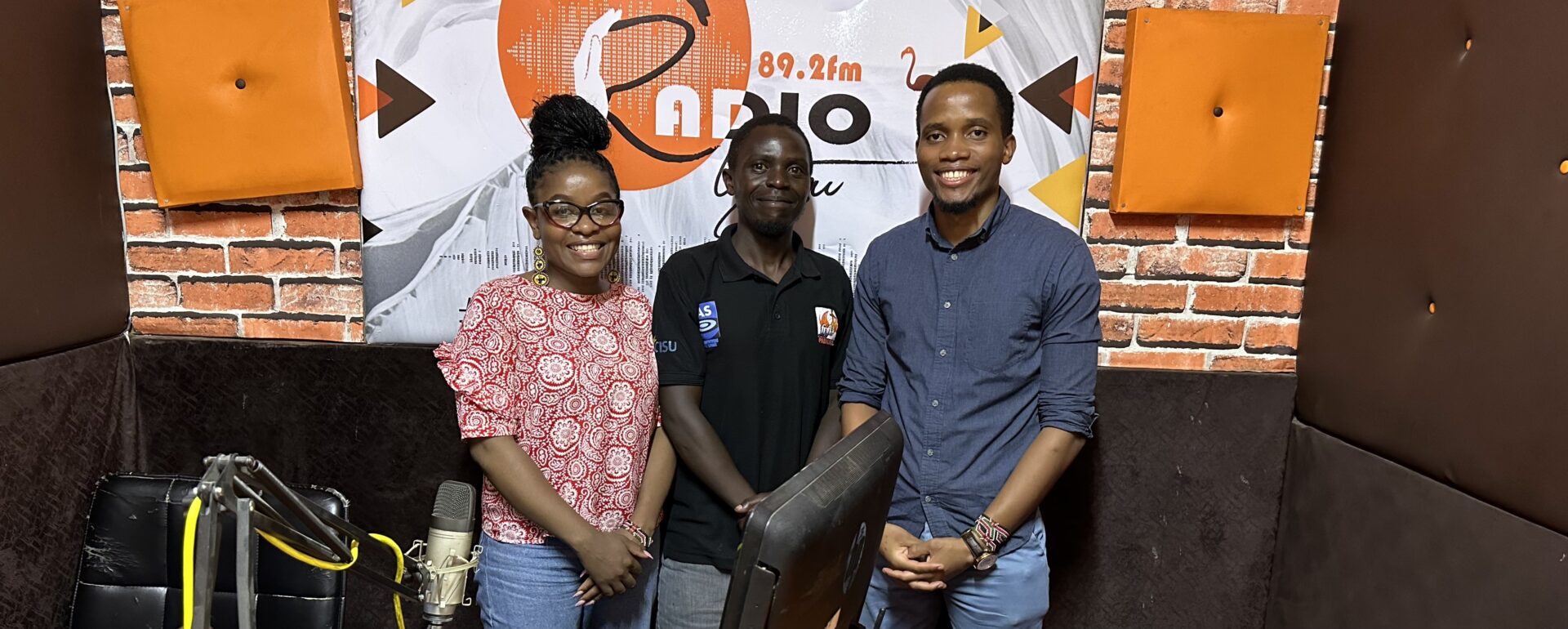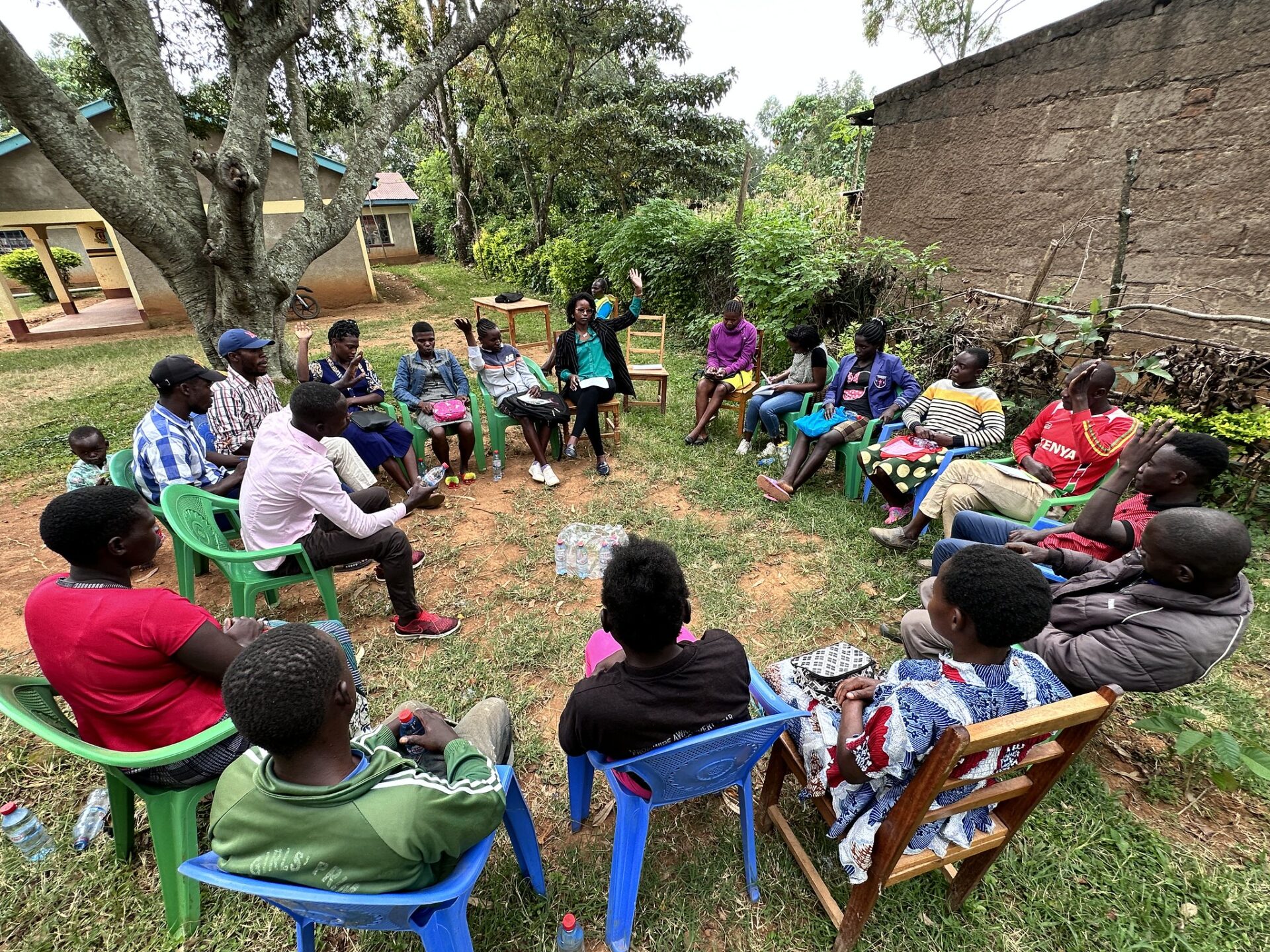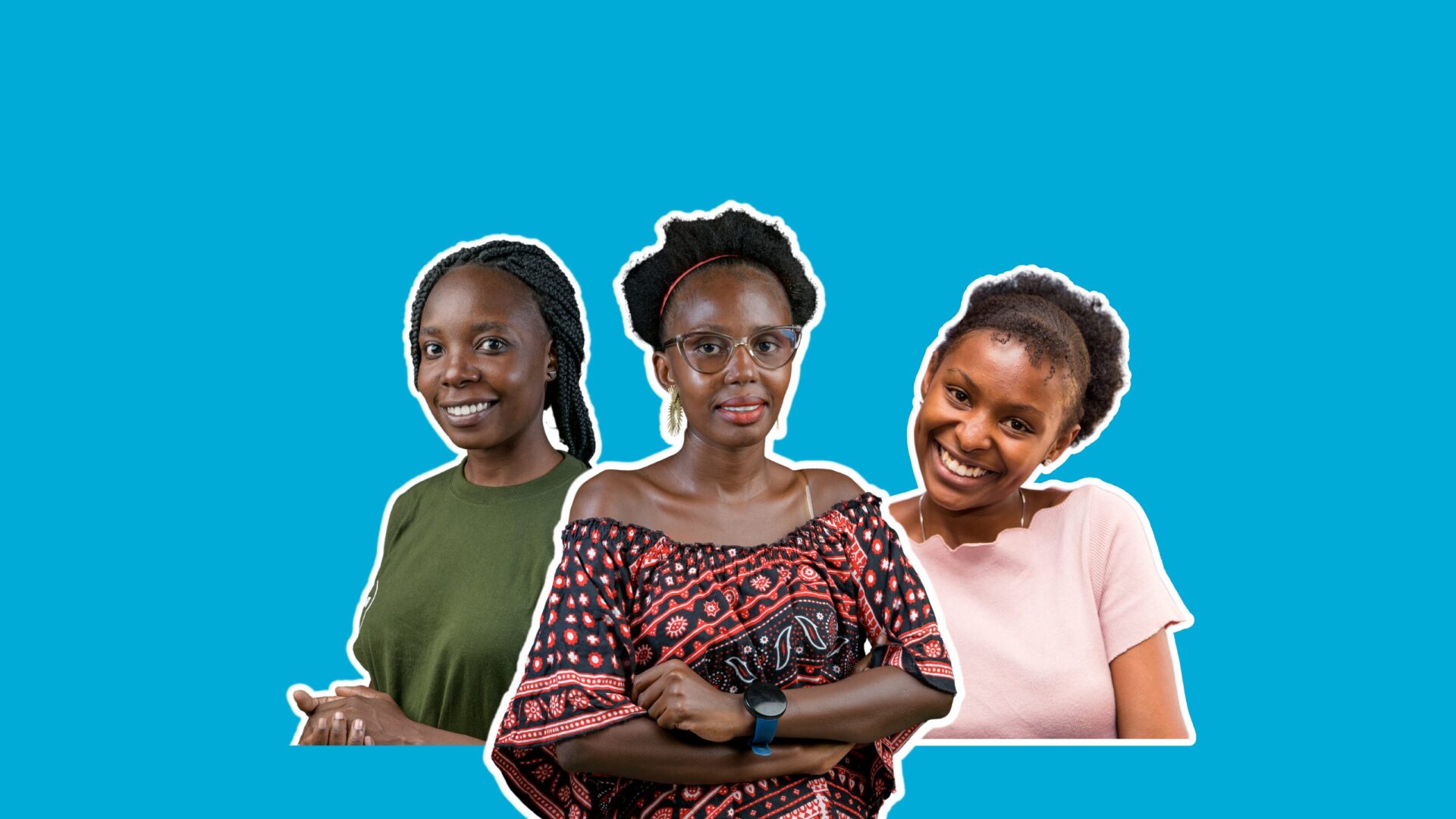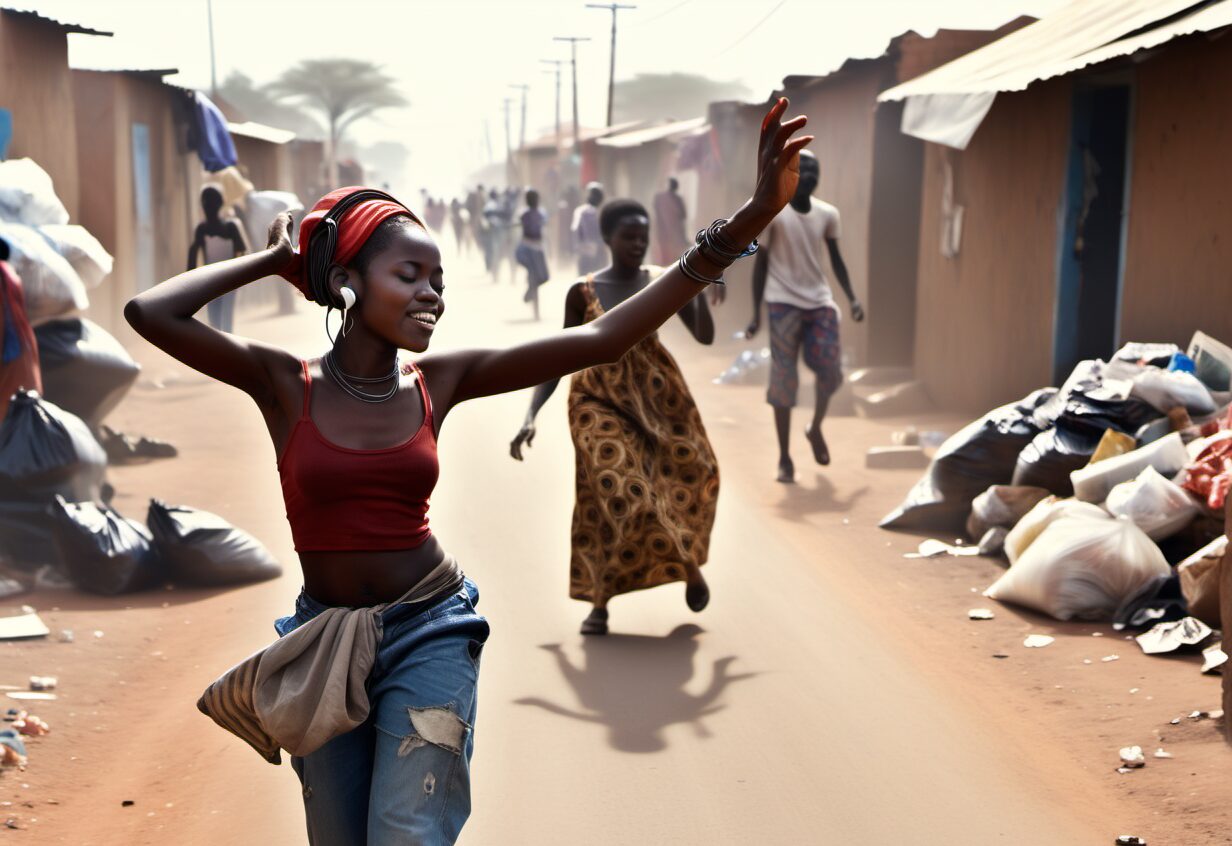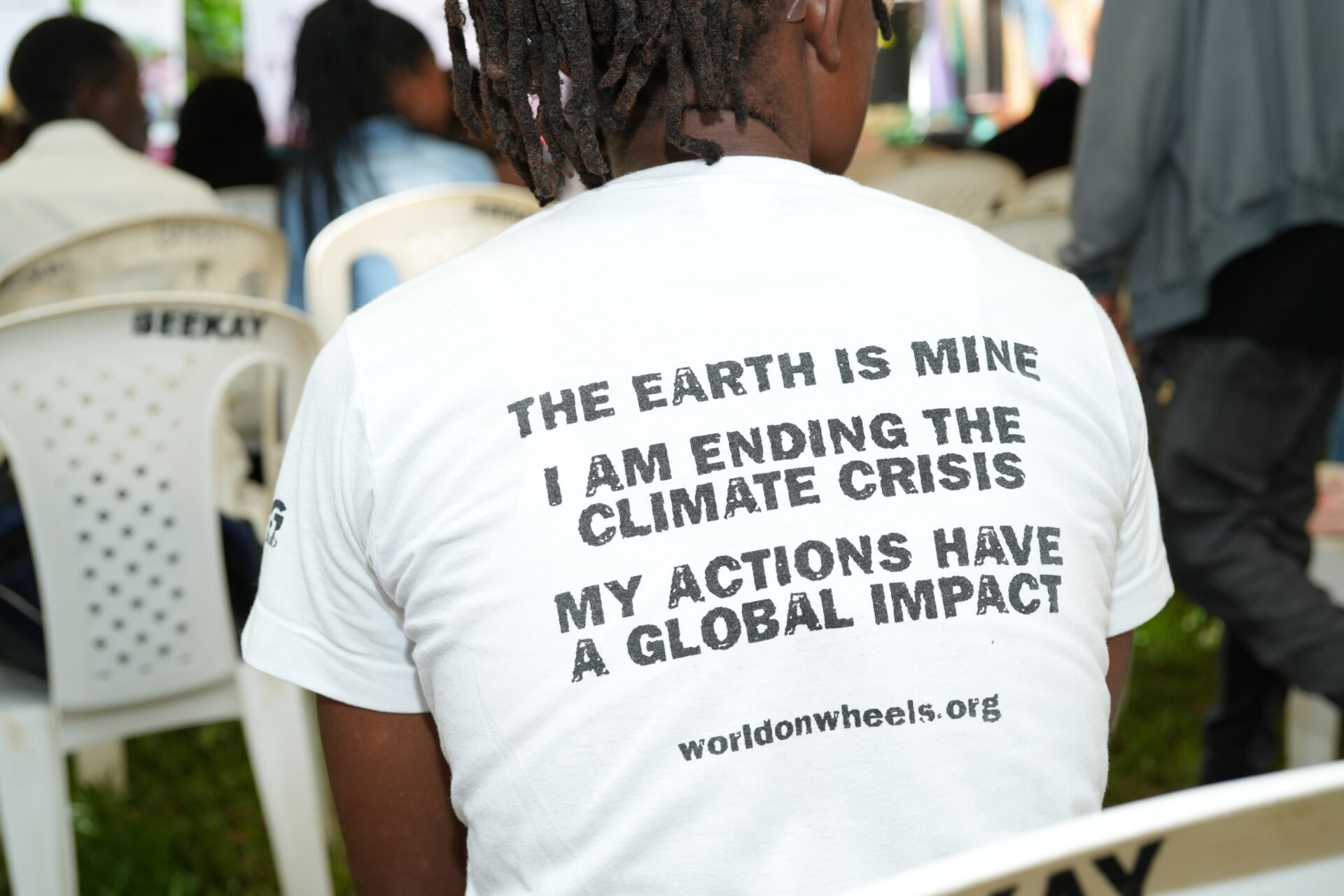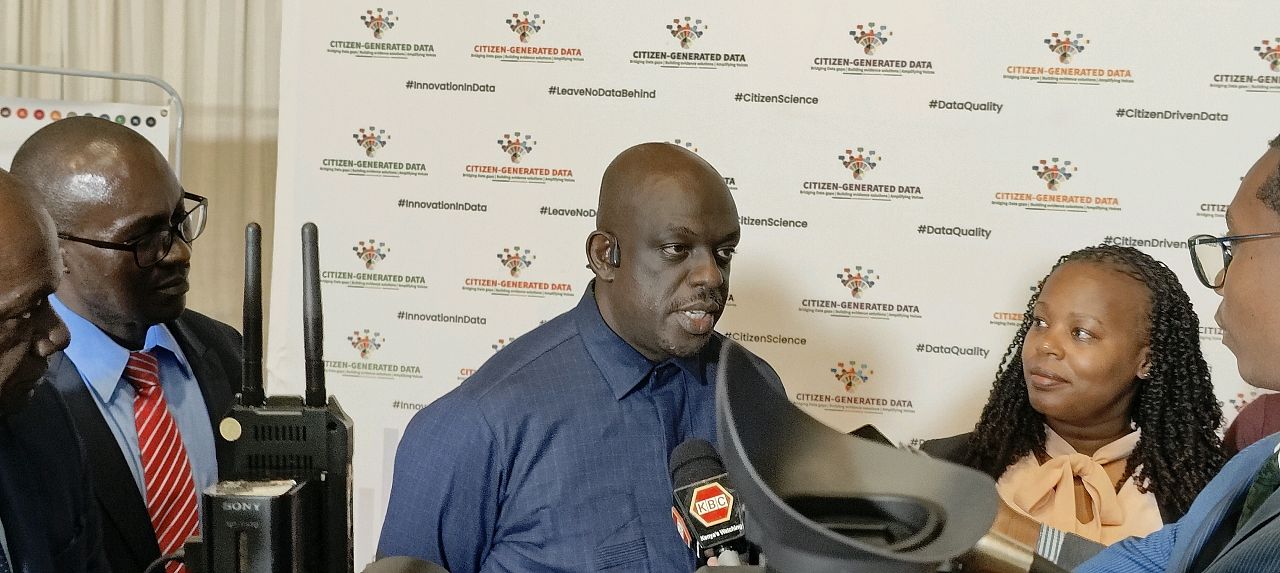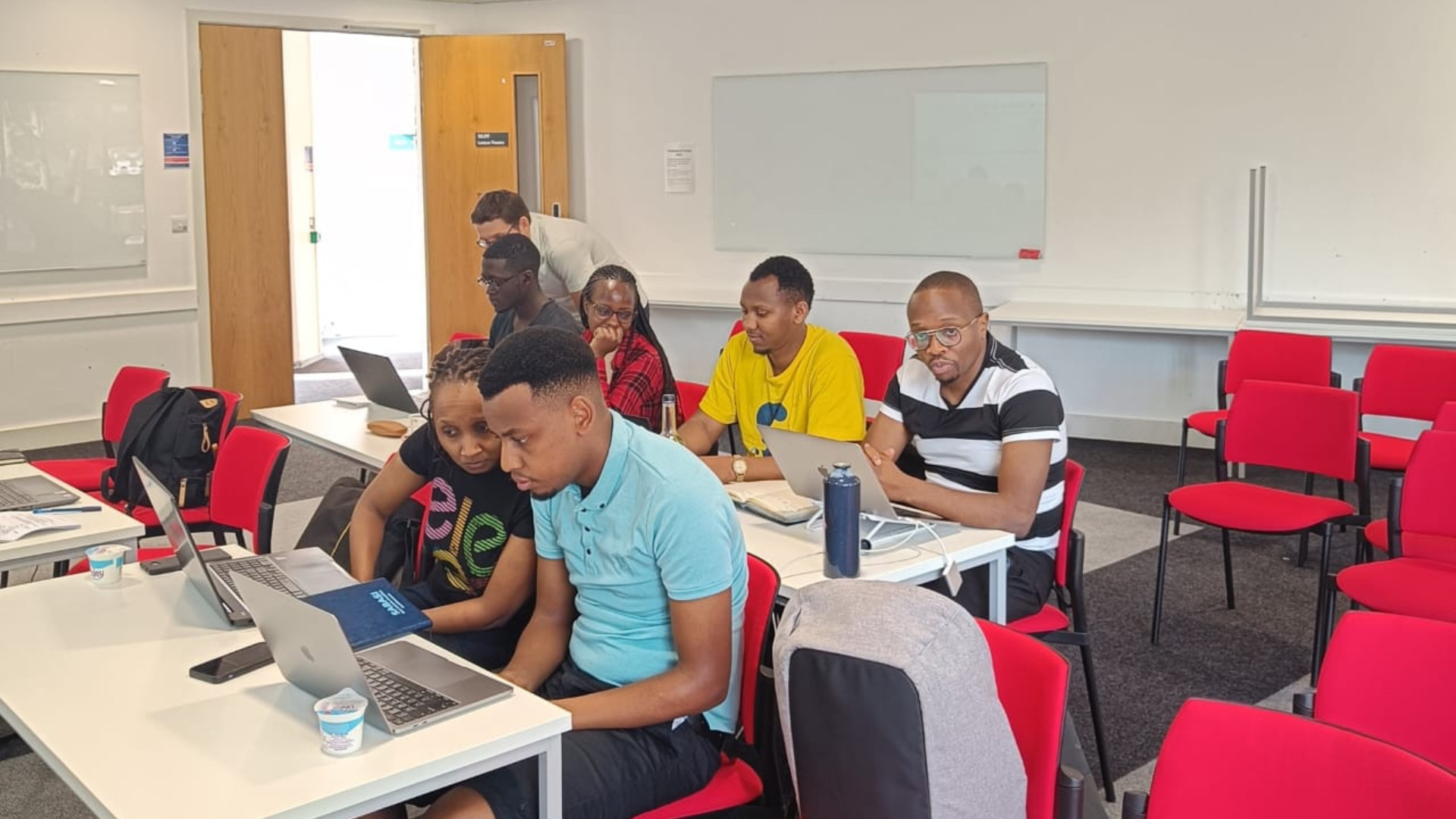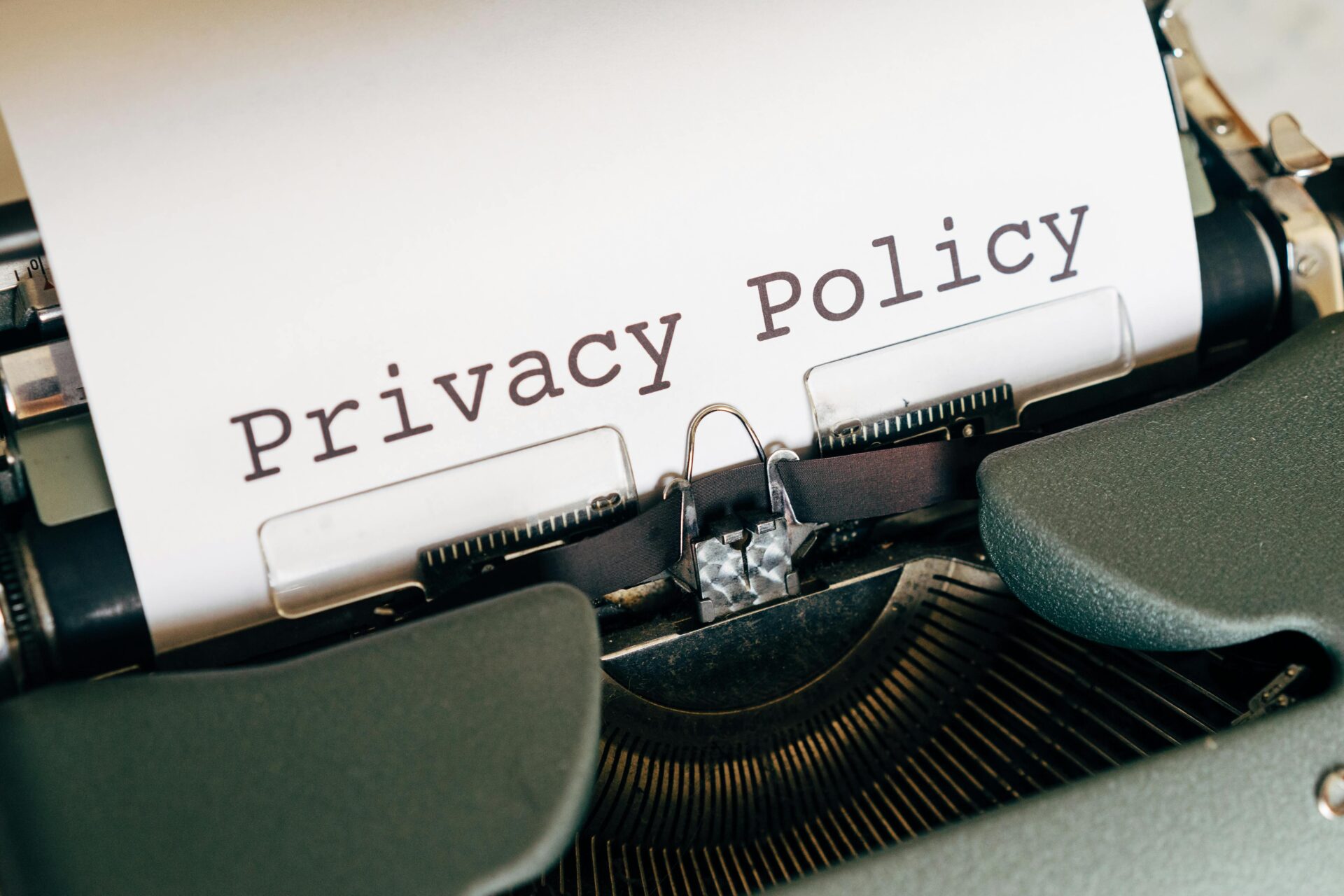On 16th April 2020, the Open Institute through the Ability Programme hosted an online Persons with Disabilities Brainstorm meeting to share and understand the key challenges relating to PWDs and COVID-19 and develop recommendations on how PWDS could be supported during this time.

Some of the participants in the virtual meeting include Andy Speaks 4 special Needs Persons Africa, Equal Measures 2030 Africa, Amref Health Africa, Communication Authority of Kenya , Access Network of the Blind, Development Initiatives, Differently Talented Society Kenya, T21 Down Syndrome Families Support, Flone Initiative, International Labour Organization, Kenya Community Learning Centre, Kenya Institute of Public Policy Research and Analysis and Autism Learning Centre.
The 2019 census data on Persons with Disabilities (PWD) is essential for the government to develop inclusive policies to fight COVID-19 that encompass all Kenyans because to effectively fight the spread of COVID-19 means ensuring all persons in the country are taken care of.
So far, the Kenyan government has taken the following measures to decrease the spread of COVID-19 in the country:
- Urged citizens to practice social distancing/stay at home
- Self or government quarantine anyone who has recently arrived in the country
- Sensitisation campaigns/messaging calling for citizens to cough into the elbow, wash their hands often and wear masks
- Erected washing stations and asked all open establishments to have washing stations as well
- Keeping a safe 1.5 m distance from another
- Discouraged large crowds/ gatherings
- Enforced a 10- hour curfew countrywide
- Enforced a lockdown of inter-county movement for those living in Nairobi, Mombasa and Kilifi
- A one-person per sit rule in all public transportation
- 10 billion Kenya shillings relief set aside for special groups
The Key Challenges Relating to Persons with Disabilities and COVID-19
“The welfare of persons with disability is key in terms of provision of resources, essential goods {food, groceries, sanitizers, masks and other medical consumables}” – Alice Mundia
Through the brainstorm meeting, it was clear that Kenyans with disabilities were facing several challenges with the measures put in place by the Kenyan government to flatten the curve of COVID-19 in the country.
- Social distancing and public transport: PWDs who rely on their personal assistants are struggling with day-to-day tasks without them, for example; shopping for food and other essentials, household chores, running errands, getting daily exercise and accessing public transport etc.
On a normal day, persons with visual disabilities and wheelchair users rely on a personal aide or the goodwill of touts to board a matatu, yet one measure to avoid COVID-19 is to avoid being touched but for a wheelchair user to get into the matatu they will require assistance because public transport in the country is not accessible for all. Wheelchair users also run an increased risk of their wheelchairs being contaminated with the virus by somebody who might be assisting them.
Persons with disabilities have also become a heightened target for discrimination not only because of their disability but because of a recent ’unspoken myth’ that PWDs are somehow more likely to have the virus. There is a case in which people refused to board a matatu because an individual with albinism was in the same vehicle. This was done in the guise of social distancing.
- Media communication on COVID-19: So far, the communication has been favourable, the media has been able to pass the information on the pandemic to all Kenyans. However, during press conferences when the camera zooms in on the speaker i.e Cabinet Secretary Mutahi Kagwe, the sign language interpreter disappears and persons with hearing disabilities miss out on some of the updates.
Communication on COVID-19 is being channelled in different ways such as; posters and memes. However, this mode of communication disconnects information for persons with visual disabilities; who are not able to read the posters and memes.
- E-learning: many parents do not have access to smart devices or the internet, and if they do in many cases their children with disabilities will need more time to be oriented on how to use these devices and the internet for daily learning. Thousands of children with visual disabilities now have no access to assistive devices like Braille paper and Braille readers at home.
Deaf children cannot keep up with online classes without their sign language interpreters, as not all teachers know how to sign.
The sudden disruption from a normal school routine has affected the progress of children with disabilities, most notably those with developmental disabilities. Working without the support of their professional special-needs teachers is proving detrimental to children with intellectual or autoimmune disabilities. Parents who are not trained in special-needs care are struggling to keep up with the school syllabuses and at the same time look for money for food and bills, as they are forced to give their children with disabilities round-the-clock care.
- Personal Protective Equipment(PPE): The government is yet to roll out mechanisms to get personal protective equipment to PWD‘s for free. People with visual disability need PPE even more and the average Kenyan, for example, hand sanitisers and latex gloves as they rely heavily on using their hands for tactile feedback.
At the same time, unfortunately, using gloves heavily distorts the detail of feeling different surfaces for the blind and visually impaired. The masks being sold and distributed do not take into consideration the deaf community who use lip-reading as a means of communication. - Curfew: The panic and chaos caused by citizens rushing to beat the curfew disorientate PWDs caught up in the rush. There is widespread concern over personal safety and security when home for PWDs that live alone for fear of being taken advantage of. Increased reports of domestic physical abuse towards women and girls with disabilities.
- Accessing Healthcare: PWDS are worried about how healthcare workers and health facilities will be able to handle them if they contract the virus.
Recommendations
“There is a need for police officers to practise kindness to everyone and PWDs after the curfew.” -Alan Herbert
- Registration of PWDS in the interior regions of the country, in order for them to access the COVID-19 benefits from the government, if it will use the NCPWD database.
- Organize regular updates with the disability sector in order to ensure that the wealth of information available is cascaded.
- PWDs should advise the Government on the special support they require, as a special package.
- Sign Language Inclusivity
Events that involve PWDs should have the direct phrase; “Kenya Sign Language inclusive” in all the marketing materials such as the information pack and WhatsApp forwards. This will ensure that any person with hearing disabilities will be aware that they will be catered for.
- Kenya Institute of Curriculum Development (KICD)
KICD should come up with online programs that can be shared with all PWD students, as they have done for the neuro-typical learners, possible through radio stations.
- Develop a way to track and voice out redress in the cases of women PWDs experiencing gender-based violence (GBV) which is likely to increase because of social distancing.
- PWDs should leverage existing platforms to further the disability cause since working in isolation would not be beneficial.
- The government should ensure that PWDs are well catered for and that day to day activities are not disrupted. Through the provision of PPE such as free masks, hand sanitizer and gloves etc.
- There should be dissemination of inclusive COVID-19 information for persons with disabilities in mainstream media not just targeted to PWDs but everyone to reach more people for purposes of awareness and reduce stigma and discrimination.
If you need more information on the brainstorming session reach out to The Ability Programme coordinator, Crystal Asige on: E-mail: ability@openinstitute.com

